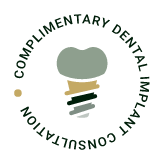You may not think about your stages of sleep all that often. You go to bed at night and wake up in the morning without giving it a second thought. Sometimes you have dreams and sometimes you don’t However, if you have sleep apnea, you may not be getting the quality sleep that your body needs to function properly. Continue reading to learn more from your dentist in Spring Lake about the different stages of sleep and how sleep apnea affects them.
Stage One: Light Sleep
When you first fall asleep, you eye movements will begin to slow down, and your body is still alert to some degree. Outside stimuli could still easily wake you for these few minutes. In fact, stage one only lasts between five to ten minutes. This stage can be considered as a transition period between wakefulness and sleep. If someone wakes during this time, they may not even realize that they were asleep.
Stage Two: Fairly Light Sleep
During this time, you become less aware of your surroundings, your body temperature drops, and your breathing and heart rate becomes more regular. At this time, your brain produces bursts of rapid, rhythmic brainwave activity known as “sleep spindles.” The American Sleep Foundation reports that people spend about 50% of their sleep at this stage.
Stage 3: Deep Sleep
This stage causes your muscles to relax. Your blood pressure and breathing rate drops as well. In fact, this is when you are sleeping the deepest. You are less responsive to noises and activity around you. Deep, slow brain waves known as “delta waves” emerge at this time. This is your body’s chance to repair any muscles and tissues that were damaged during the day. This is also crucial for growth and development in children and teenagers.
Stage 4: REM Sleep
REM stands for “rapid eye movement.” During this stage, your brain becomes more active, your body becomes relaxed, and your eyes move rapidly. This is the time of night when you are most likely to have dreams due to the increased brain activity.
How Does Sleep Apnea Affect the Stages of Sleep?
Having a sleep disorder, like obstructive sleep apnea, that keeps waking you up throughout the night, you won’t be spending as much time in stages 3 and 4 of the sleep cycle. Most of the sleep you have will take place in stages one and two. Your physical and mental health will suffer as a result. For instance, lacking sleep causes you to have a weakened immunity, higher blood pressure, memory issues, mood changes, and more! These issues will only get worse as time goes on.
If you feel drowsy and irritable through the day on a regular basis, this could be a sign of sleep apnea. Bring up these issues with your dentist. This way, you can begin working towards quality, uninterrupted sleep.
About the Author
Dr. Edward J. Dooley is an experienced dentist who has been working in the field for more than three decades. He served his country by working as a Dental Officer in the Navy before opening up his own practice in 1986. He is a member of numerous professional organizations including the American Dental Association and the Academy of General Dentistry. Sleep apnea therapy is one of the many services he offers at his practice. To learn more or to schedule an appointment, visit his website or call (732) 974-2288.


